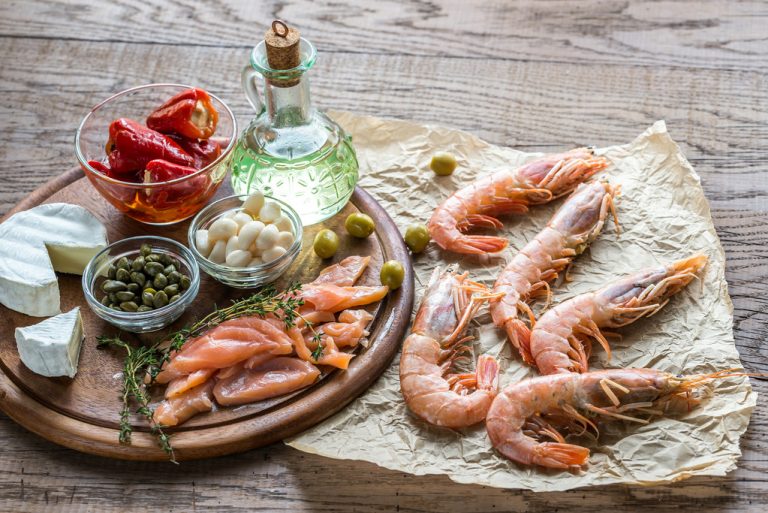In the fight against excess pounds, the low-carb diet is very popular. A new study published surprising results: low carb is not as healthy as previously thought and can even shorten life expectancy under certain circumstances.
The low-carb diet is well known to everyone and is considered by many to be a successful weight loss diet. But is low carb not so healthy for us and can it even harm us?
dr Sara Seidelmann, a researcher at Brigham and Women’s Hospital Boston, took a closer look at the low-carb diet and its effects and came up with startling results that were published in The Lancet Public Health. The study found that under certain circumstances, a low-carb diet can shorten life expectancy by up to four years.
Carrying out the study
Two studies were conducted to take a closer look at the effects of a low-carb diet.

1st study:
The study spanned 15,400 subjects over a 25-year period and took into account gender, age, educational level, ethnicity, physical activity, income, diabetes, smoking, and precise dietary habits. The participants had to fill out questionnaires about their eating habits, with information about the food and drink consumed and the portion sizes of the meals.
Results:
- at the age of 50, the remaining life expectancy was estimated at another 33 years for the subjects who consumed moderate amounts of carbohydrates, i.e. 50 to 55 percent of the daily energy intake
- at the age of 50, the remaining life expectancy was estimated at another 32 years for the subjects who consumed high amounts of carbohydrates, i.e. more than 65 percent of the daily energy intake
- at the age of 50, the remaining lifespan was estimated at another 29 years for the subjects who consumed small amounts of carbohydrates, i.e. less than 30 percent of the daily energy intake
- Conclusion: Consuming a moderate amount of carbohydrates in combination with vegetable sources of protein and fat is better than a low-carb diet containing meat.
2nd study:
In a second study, the scientists examined the exact implementation of the low-carb diet of 430,000 participants using two different types of nutrition:
- the classic low-carb diet with few carbohydrates, lots of animal proteins and fats (meat, eggs, cheese, and milk)
- the vegetarian low-carb diet with few carbohydrates, lots of vegetable proteins and fats (nuts, legumes, etc.)
Results:
This study found that a low-carb, high-meat diet shortened life expectancy compared to a moderate-carb diet. However, those who use vegetable protein sources even have a longer life expectancy than those who have a moderate carbohydrate intake.
Conclusion: A vegetarian low-carb diet can increase life expectancy.
dr Sara Seidelmann, who led the study, explained: “Low carb diets are becoming more popular because people believe it is a healthy way to lose weight quickly. However, our data suggest that a low-carb, animal-based diet is more likely to be associated with shorter lifespans. Therefore, people should not be encouraged to follow this diet. Instead, people who want to eat low carb should swap carbohydrates for plant-based fats and plant-based proteins, as such a low-carb diet actually enables healthy aging.”
Why low carb and high carb shorten the life
Scientists say Anyone who eats a low-carb diet and eats little fruit, vegetables, and whole grains, but more animal products automatically promotes inflammation in the body, increases oxidative stress, and accelerates the aging process, which increases risk of death.
A diet rich in carbohydrates is just as bad because those who mainly eat unhealthy foods made from white flour (toast, biscuits, etc.) promote metabolic diseases and digestive problems.
If low carb, then vegetarian?
A low-carb diet is only recommended if it consists mainly of vegetable protein and fat sources such as vegetables, legumes, and nuts. The researchers, therefore, recommend a plant-based wholesome diet. Meat is not taboo, but it should never replace carbohydrates.

The scientists in the study, therefore, classify both a low-carb diet and a high-carb diet as not beneficial for health.
Our conclusion to the study
Due to the duration of the study, it must also be assumed that study participants changed their diet over the course of this time, which could falsify the results. It is also questionable whether the so-called low-carb subjects in these observational studies actually followed a conscious low-carb diet the whole time. In addition, the surveys only show correlations and no causalities, so the connection between cause and effect is not taken into account.
So there is no reason to get excited. We recommend a balanced, conscious, and moderate low-carb diet if you want to eat a low-carbohydrate diet. Be mindful of the protein and fat sources you consume, just as you should ensure adequate vitamin and fiber intake. Diets cannot only be judged on the basis of carbohydrate and protein content. Many other factors, including nutrient sources, play an important role.







